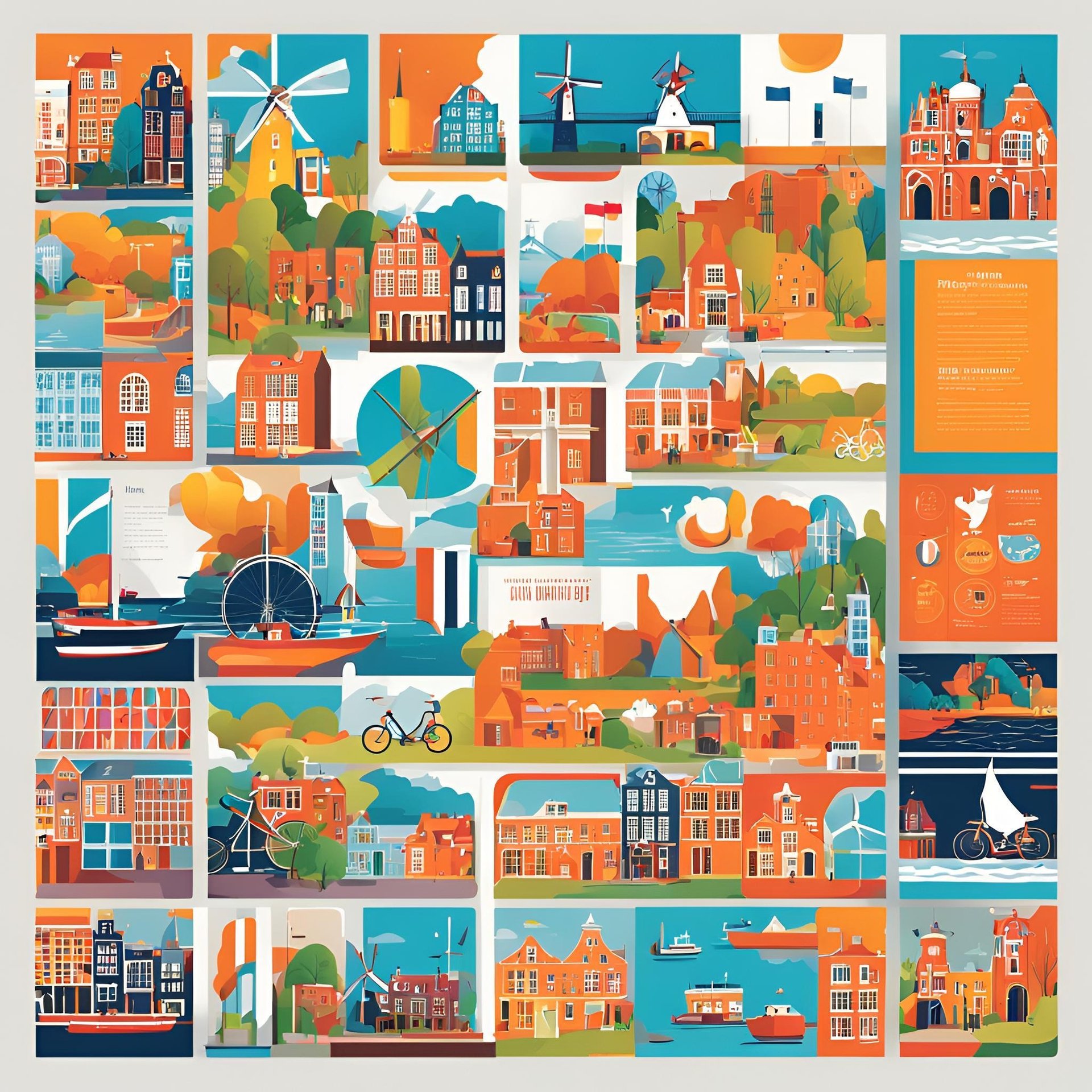
Work Life in the Netherlands: Your Guide to Jobs, Bosses, and Biking to Work
The Netherlands offers a unique work environment perfect for expats, students, and migrants. With flat hierarchies, direct communication, and a culture that treasures work-life balance, it’s an experience like no other. Whether you’re hunting for your first job, exploring part-time work as a student, or diving into self-employment, this guide has you covered. Expect tips on job searching, workplace culture, certifications, and how to thrive in this cycle-loving, coffee-drinking nation. Click and learn more!


Welcome to the Netherlands, where your career might be as smooth as a canal ride—provided you know the ropes! Whether you’re an expat settling in, a student balancing classes and work, or a migrant exploring new opportunities, this guide breaks down everything you need to know about thriving in the Dutch workforce.
1. Job Hunting: From Networking to Nailing It
Looking for work? In the Netherlands, networking is king. Platforms like LinkedIn, Indeed, and Randstad are popular, but don’t underestimate the power of personal connections. Join expat groups, attend local meetups, or connect through alumni networks.
Non-EU citizens often need a work permit (TWV) or a combined permit (GVVA) for longer stays. Employers are used to dealing with these processes, especially for highly skilled migrants. Bonus tip: Check out recruitment events aimed at international talent—the Dutch love efficiency, and these events are your shortcut to success.
2. Work Culture: Direct, Honest, and Egalitarian
Forget about sugar-coating; Dutch workplaces thrive on direct communication. Feedback is straightforward, and hierarchies are flat. Even as a newcomer, your opinion is valued (as long as it’s punctual and practical).
Coffee breaks (koffiepauzes) are sacred, and work-life balance is non-negotiable. Working overtime might raise eyebrows, not admiration. So, get ready to clock out on time and enjoy your evenings guilt-free!
3. Working While Studying: Balancing Books and Euros
For students, part-time work can help cover expenses. EU/EEA students are free to work without permits, while non-EU students require a TWV. Most student jobs are in hospitality, retail, or delivery services. If you’re bilingual, that’s a big plus!
University campuses often offer flexible jobs like research assistant roles or event staffing. And don’t forget to polish your CV—many Dutch employers appreciate a clear, concise resume (and a touch of creativity doesn’t hurt).
4. Self-Employment: Start Your Dream Business
If you’ve got entrepreneurial spirit, the Netherlands is ready for you. Freelancers, or zzp’ers, are a growing part of the workforce. Registration at the KvK (Chamber of Commerce) is straightforward. For expats, the startup visa offers a fantastic opportunity to bring innovative ideas to life.
Freelancing is especially common in tech, creative industries, and consultancy. Just remember to keep your invoices organized—the Belastingdienst (tax office) loves efficiency too.
5. Blue Collar Jobs: Opportunities Abound
From logistics to construction, blue-collar roles in the Netherlands are plentiful. Some roles require certifications, like safety training or operating heavy machinery. Websites like Werkzoeken or Tempo-Team can help you find these opportunities. While not all positions demand fluent Dutch, basic language skills can go a long way.
6. Certifications and Skills: Boost Your Employability
Investing in certifications can open doors to better jobs. For example, IT certifications, language proficiency exams, or industry-specific qualifications can make your CV shine. Many Dutch employers are happy to support your development through courses or training programs.
7. Minimum Wage and Benefits: What to Expect
The minimum wage (2023) is €1,934.40 per month for workers aged 21+, plus an 8% holiday allowance. Benefits include pensions, unemployment insurance, and generous parental leave policies. Expats might qualify for the 30% tax ruling, which means a chunk of your income stays tax-free. A Dutch treat indeed!
8. Work-Life Balance: The Dutch Masterpiece
Dutch employers believe in working to live, not living to work. Many offices offer 36- or even 32-hour workweeks. Vacation days? At least 20 annually, often more. And public holidays? They’re not just paid—they’re celebrated with gusto.
For internationals, adapting to this slower pace might feel unusual, but you’ll soon love the freedom to bike along canals or relax at a park after work.
Working in the Netherlands is more than a job; it’s a lifestyle. From flat hierarchies to flexible hours, this country is designed for balance and personal growth. So, whether you’re chasing your dream career or just need a student job to fund your stroopwafel habit, the Dutch workforce has a spot for you. Happy job hunting! 🚲
NetherGuides
Your resource for thriving in the Netherlands.
© 2024. All rights reserved.
Top 10 Things to Do When You Arrive in the Netherlands
Daycare, Schools, and Activities in the Netherlands
How to Open a Bank Account in the Netherlands
Residence Types and Registration Process
Housing types and finding a home
Dutch Higher Education
Health Insurance in the Netherlands
Work Permits and Rights in the Netherlands
Essentials for Everyday Life in the Netherlands
Quick Facts and FAQ
